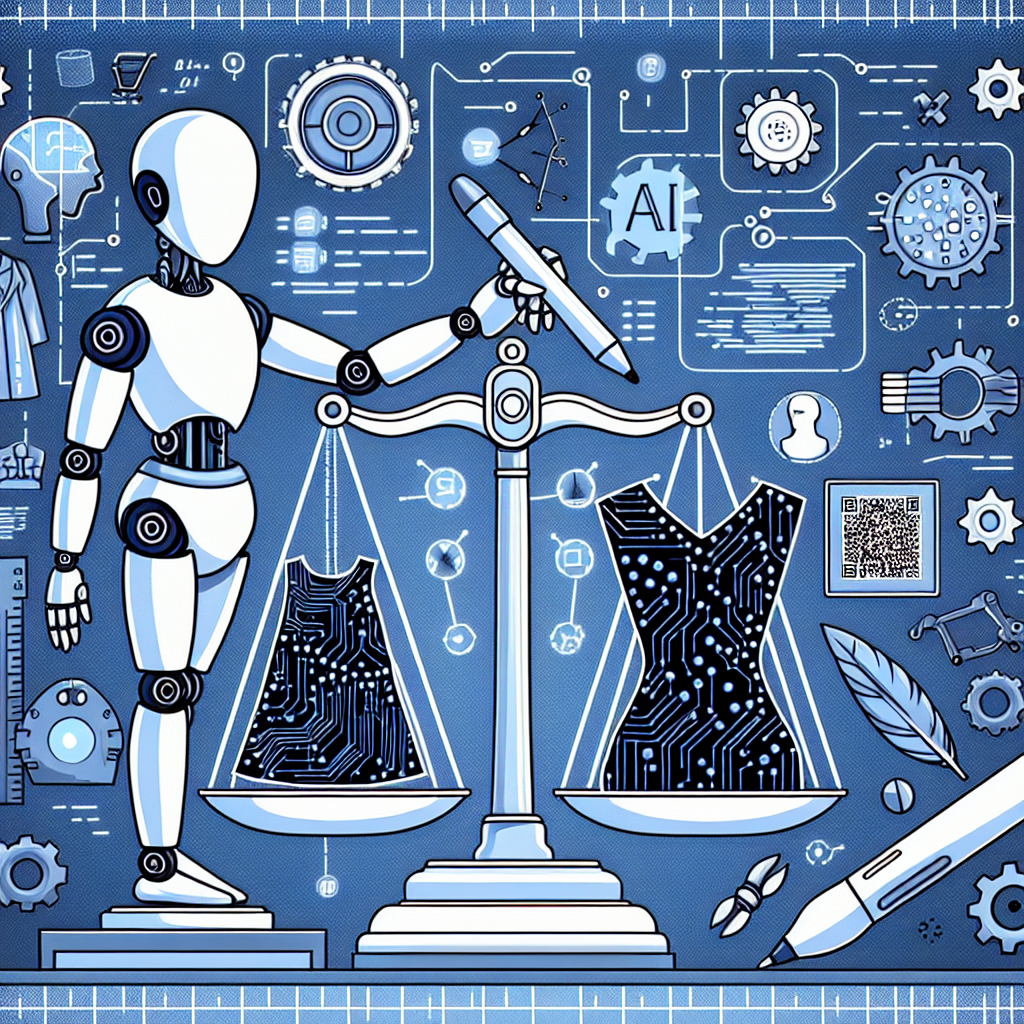In recent years, the fashion industry has seen a significant increase in the use of artificial intelligence (AI) technologies. From personalized shopping recommendations to virtual fitting rooms, AI has revolutionized the way we shop for clothes and accessories. However, as with any new technology, there are ethical considerations that must be taken into account when implementing AI in the fashion industry. One of the most pressing concerns is the issue of bias and discrimination in AI algorithms.
Bias in AI algorithms occurs when the data used to train the algorithm is skewed or incomplete, leading to inaccurate or unfair results. This bias can manifest in a variety of ways, from excluding certain groups of people from receiving personalized recommendations to perpetuating harmful stereotypes about race, gender, or body type. In the context of fashion, bias in AI algorithms can lead to discrimination against marginalized communities and reinforce harmful beauty standards.
To address these ethical concerns, fashion companies must take proactive steps to ensure that their AI algorithms are fair and unbiased. This includes conducting regular audits of AI systems to identify and eliminate any bias, as well as incorporating diverse and inclusive datasets into the training process. Additionally, companies should prioritize transparency and accountability in their AI systems, making it clear to consumers how their data is being used and ensuring that they have the ability to opt out of certain features if they choose.
One of the key challenges in addressing bias in AI algorithms is the lack of diversity in the tech industry. According to a 2020 report by the World Economic Forum, women make up only 22% of AI professionals globally, and people of color are severely underrepresented in the field. This lack of diversity can lead to blind spots in AI development, as developers may not fully understand the potential impact of their algorithms on diverse communities.
To combat this issue, fashion companies should prioritize diversity and inclusion in their hiring practices, ensuring that their AI development teams reflect the diversity of their customer base. By bringing in a range of perspectives and lived experiences, companies can better identify and address bias in their AI algorithms, ultimately creating more equitable and inclusive systems.
In addition to bias, another ethical concern in the use of AI in fashion is the issue of privacy. As AI algorithms become increasingly sophisticated, they have the ability to collect and analyze vast amounts of personal data, from shopping preferences to body measurements. This raises concerns about data security and the potential for misuse of sensitive information.
To address these privacy concerns, fashion companies must prioritize data protection and transparency in their AI systems. This includes obtaining explicit consent from consumers before collecting their data, as well as implementing robust security measures to safeguard against data breaches. Companies should also be transparent about how they use consumer data and provide clear options for opting out of data collection if desired.
Despite these ethical challenges, the use of AI in fashion also presents opportunities for positive impact. For example, AI technologies can help companies reduce waste and improve sustainability by optimizing production processes and reducing overstock. AI can also enhance the customer experience by providing personalized recommendations and improving the accuracy of sizing and fit.
Ultimately, the key to addressing bias and discrimination in AI in fashion lies in a combination of technological solutions and ethical practices. By prioritizing diversity and inclusion in AI development, conducting regular audits of AI systems, and prioritizing transparency and accountability, fashion companies can ensure that their AI algorithms are fair, unbiased, and ethical.
FAQs:
Q: How can fashion companies ensure that their AI algorithms are fair and unbiased?
A: Fashion companies can ensure that their AI algorithms are fair and unbiased by conducting regular audits of AI systems, incorporating diverse and inclusive datasets into the training process, and prioritizing transparency and accountability in their AI systems.
Q: What are some examples of bias in AI algorithms in the fashion industry?
A: Bias in AI algorithms in the fashion industry can manifest in a variety of ways, from excluding certain groups of people from receiving personalized recommendations to perpetuating harmful stereotypes about race, gender, or body type.
Q: How can fashion companies address privacy concerns in the use of AI?
A: Fashion companies can address privacy concerns in the use of AI by obtaining explicit consent from consumers before collecting their data, implementing robust security measures to safeguard against data breaches, and being transparent about how they use consumer data.
Q: What are some of the positive impacts of AI in fashion?
A: Some of the positive impacts of AI in fashion include reducing waste and improving sustainability, enhancing the customer experience with personalized recommendations, and improving the accuracy of sizing and fit.

